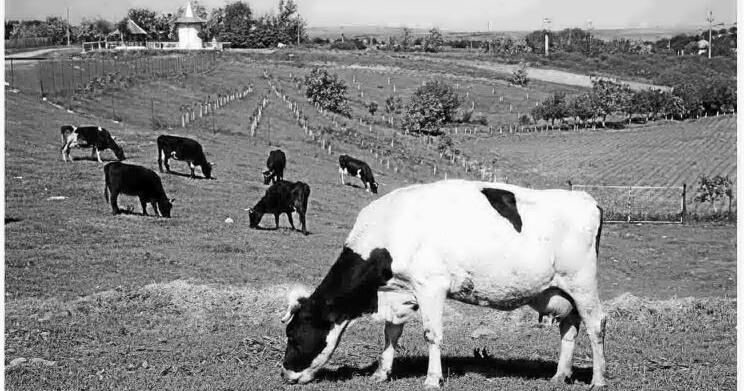COPENHAGEN, Denmark — Denmark plans to implement a tax on livestock farmers for the greenhouse gases produced by their cows, sheep, and pigs starting in 2030. This initiative makes Denmark the first country to target methane emissions from livestock, a significant contributor to global warming.
The goal is to reduce Danish greenhouse gas emissions by 70% from 1990 levels by 2030, according to Taxation Minister Jeppe Bruus.
Starting in 2030, Danish livestock farmers will be taxed 300 kroner ($43) per ton of carbon dioxide equivalent, with the tax increasing to 750 kroner ($108) by 2035. However, with an income tax deduction of 60%, the actual cost per ton will be 120 kroner initially, eventually increasing to 300 kroner by 2035.
While carbon dioxide receives more attention for its impact on climate change, methane is much more potent, trapping about 87 times more heat over a 20-year timescale, as per the U.S. National Oceanic and Atmospheric Administration.
The levels of methane, emitted from various sources including landfills, oil and natural gas systems, and livestock, have been rapidly increasing since 2020. Livestock contributes approximately 32% of human-caused methane emissions, according to the U.N. Environment Program.
Denmark aims to become climate neutral by 2045, with Bruus stating that Denmark will be the first country to introduce a genuine CO2 tax on agriculture, hoping that other nations will follow suit.
New Zealand also passed a similar law slated to begin in 2025, but it was recently scrapped following criticism from farmers and a change in government to explore alternative ways to mitigate methane emissions.
The tax agreement in Denmark, reached by the center-right government and various stakeholders, is viewed as a historic compromise by the Danish Society for Nature Conservation, paving the way for a restructured food industry beyond 2030.
A typical Danish cow generates 6.6 tons of CO2 equivalent yearly. Denmark, known for its dairy and pork exports, will also tax pigs, despite cows being the main contributors to emissions.
The tax proposal is expected to be approved by the parliament, given the broad consensus on the issue.
Statistical data shows that as of June 30, 2022, Denmark had 1,484,377 cows, a slight decrease compared to the previous year.





